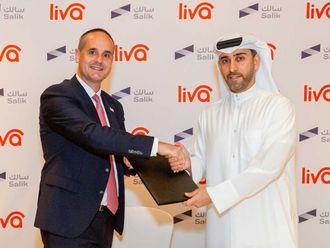Although many consumers are ditching paper in favour of electronic transactions, cash will continue to rule the Middle East and Africa payments market in the next few years.
Cash transactions in the region accounted for 93 per cent of total consumer payments in volume terms in 2012, while transactions that involved cards represented only 5 per cent, indicating the “continued importance of cash in the region,” according to Euromonitor International.
“Cash transactions are expected to remain the leading consumer payment method, with volume growth projected at seven per cent over the next five years,” Maii Abdul Rahman, research analyst at Euromonitor International, told Gulf News.
The main driver for paper-based payments is the large unbanked population in the region that may take some time to enter the financial mainstream. There is also a limited consumer adoption of electronic payments due to security concerns and cultural reasons.
The Middle East and Africa’s consumer payments market hit a value of $1.2 billion in 2012 and is expected to expand by 32 per cent in 2017 to reach $1.5 billion. In terms of total payments, cash constitutes the largest share at 68 per cent, while cards represent only 18 per cent.
Abdul Rahman said most people use cash in transactions involving remittances, transportation, delivery services, fuel and groceries. “With a significant share of expatriate population, the GCC is the largest source of remittances to India, Pakistan, Bangladesh, Philippines, Egypt and Lebanon, making remittances the leading driver of cash transactions in the region,” Abdul Rahman said.
When it comes to shopping for clothes and shoes, paying for food and beverage, as well as other discretionary expenses, most consumers prefer to pay with plastic money.
“Sectors such as food and beverage, clothing and footwear, and leisure and recreation top the list of credit card transactions, with a combined share of 50 per cent. Looking at debit cards, food and beverages remain the sector most spent on, followed by household goods and services and transport,” said Abdul Rahman.
Card transactions to go up
Cash may still be king, but with the continued push from the government, card-based transactions will become widespread in the near term.
Transactions involving cards are expected to post the highest growth, increasing by 12 per cent over the next five years, according to Euromonitor International.
“Increasing government initiatives across the region to push electronic payments and drive financial inclusion are one of the key growth drivers going forward,” said Maii Abdul Rahman, research analyst at Euromonitor International.
Abdul Rahman noted that in Nigeria, the government has recently launched 13 million national ID smart cards that can be used for electronic payments. In the UAE, the Wage Protection System (WPS) is currently facilitating salary payments for around 2 million labourers.
“These initiatives, coupled with an improved financial infrastructure, a young tech-savvy population and continued innovation with the rise of mobile commerce and NFCs (near field communications) are expected to strongly push card payment transactions in the future,” said Abdul Rahman.
“With the growth of smart phones and tablets and an increasing number of suppliers offering payment through mobile, m-commerce is gaining momentum in the region. And as disposable incomes and spending rise and the youth population is more inclined to embrace new payment methods, such as via mobile phones, this region is an ideal target market for financial institutions,” said Fulya Berksoy, regional consultant at Euromonitor International.












